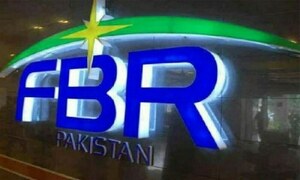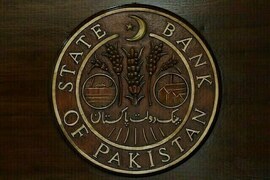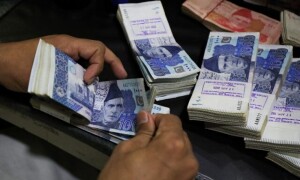Under-invoicing of imports from the United Arab Emirates (UAE) is costing the exchequer around 150 billion rupees per annum, according to research carried out by Pakistan Business Council - accounting for 25 percent (around 600 billion rupees) of total annual leakages due to tax evasion. These figures are extremely disturbing as they indicate that those with ability to pay taxes are evading taxes effectively.
The UAE is a transshipment destination and one can safely assume that under-invoicing of imports, which has its own cost, is preferred by domestic importers as the duty and sales tax imposed on imports is simply too high. Unfortunately, however, successive governments in Pakistan have, by and large, relied on indirect taxes like sales tax and excise duty in addition to high rates of withholding and advance income tax to generate revenue - taxes whose incidence on the poor is greater than on the rich - relative to raising tax revenue through direct taxes. The result has been the levy of high sales tax and duties that have over time encouraged under-invoicing. Or in other words, importers have been willing to pay the cost of under-invoicing to enable them to pay lower sales tax and duties.
Our flawed tax system also accounts for massive smuggling from across countries contiguous to Pakistan - notably Afghanistan, India and Iran. The epitome of flawed tax policies in this country include a decision to subsidise essential food items like flour without giving due relevance to its price in neighbouring countries - a fact that in previous years actually led to our government subsidising flour in India and Afghanistan.
What is also unfortunate is that the Afghan Transit Trade Agreement continues to be a major source of under-invoiced and misdeclared imports and efforts to ensure that goods destined for land-locked Afghanistan actually stay across the border have largely failed. The government needs to be more proactive than it has been in the past to plug the leak through Afghan Transit Trade.
Constant demands for a complete overhaul of our unfair, inequitable and anomalous tax system have failed to produce any meaningful changes and the federal government continues to rely on indirect tax collections to meet its revenue targets. At the same time it is relevant to note that existing laws are not being implemented and the Federal Board of Revenue (FBR) remains unable to proactively proceed against the non-filers. The result is a tax system that is skewed against existing taxpayers and in favour of those who continue to evade taxes.
This flaw in our tax system is patently evident in the budget for fiscal year 2014-15, which envisaged a rise in tax collections from advance tax by withholding agents including on (i) first and business class tickets, (ii) electricity bill above one lakh per month, (iii) higher tax on cash withdrawals from banks, and (iv) higher advance tax on car registration. While this would increase revenue collections yet it would compromise the government's drive to bring the large parallel illegal economy into the tax net. In addition, the budget's proposal to get FBR to provide relevant personal data to withholding agents including bank accounts (with a real danger of escalating cybercrime) has already been challenged by the banking sector while the airlines have stated that they too cannot distinguish between filers and non-filers (with filers budgeted to pay half the rate of non-filers), which compelled the government to charge a uniform rate of 4 percent from both filers and non-filers.
Sectors with the capacity to generate revenue were ignored in the 2014-15 budget. For example, the rate of capital gains tax on the stock market was to increase from 10 to 17 percent with effect from July this year - an agreement painstakingly made between Dr Hafiz Sheikh and the stock market players. Ishaq Dar raised the rate to only 12.5 percent for securities held up to 12 months, fuelling speculation that this decision was premised on the capacity of the 40 odd key market players to manipulate the stock market to allow the government to claim improved economic performance especially when criticism against its economic policies mounted. Dar imposed a rate of 10 percent on securities held between 12 and 24 months - a period normally beyond what stock market players engage in. Thus the 100 billion rupees that could be generated from this source was held hostage to politics. To conclude, there is much that needs to be done and the budget for the current fiscal year shows that most of the major decisions relating to tax reforms have been deferred at least for another year.
BR100
15,235
Increased By
150.4 (1%)
BR30
44,824
Increased By
812 (1.85%)
KSE100
149,971
Increased By
1353.3 (0.91%)
KSE30
45,655
Increased By
407.2 (0.9%)






















Comments
Comments are closed.